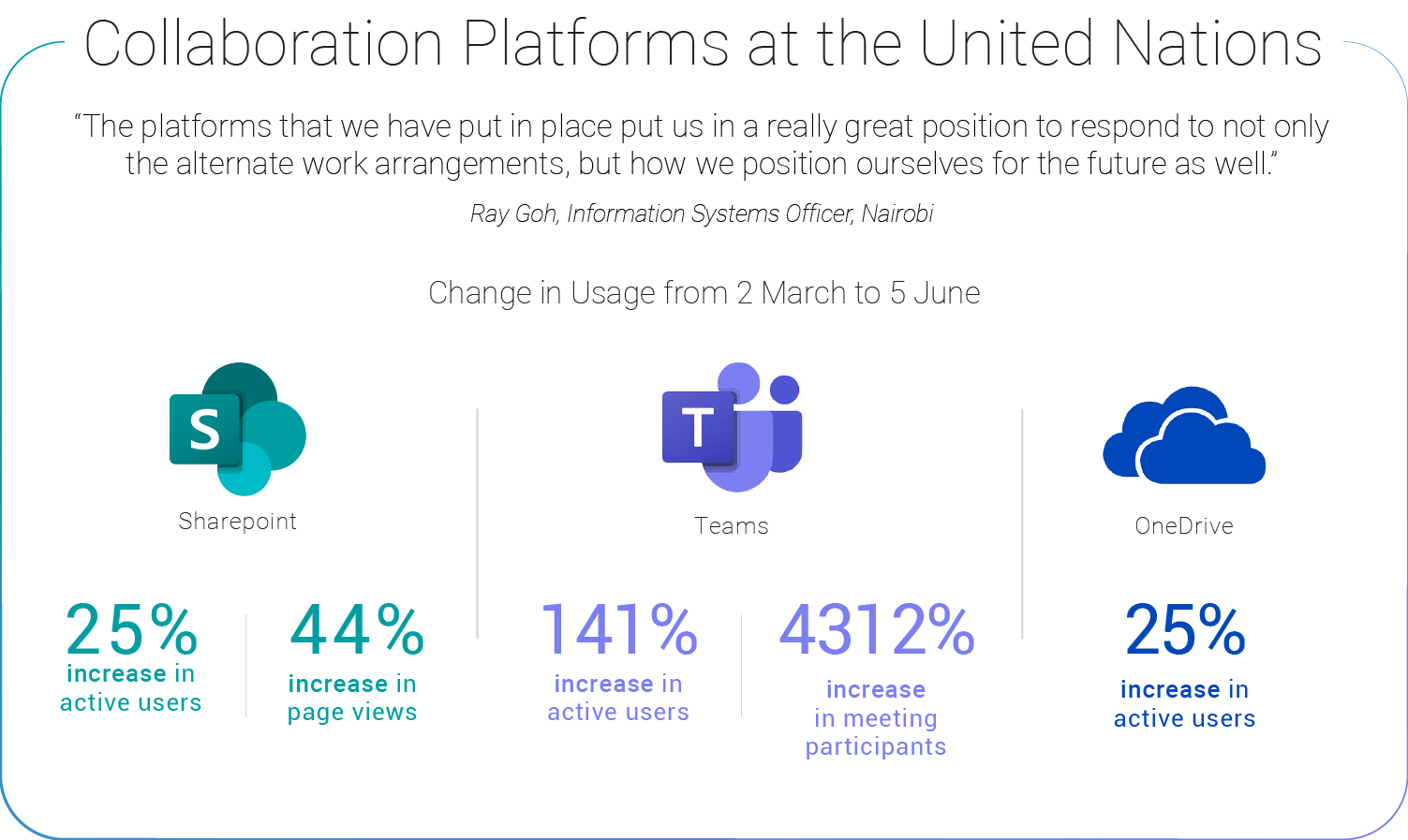On 30 September 2025 the Secretary-General signed the fifth iteration of the statement on internal control for all operations of the Secretariat for 2024.
- عربي
- 中文
- English
- Français
- Русский
- Español

Due to the global and dispersed nature of the United Nations, system-wide collaboration has always been a challenge. In person meetings are not always possible and entities across the UN system employ different tools and systems for their own work.
Over the last years, investment increasingly focused on providing better, cloud-based collaborative tools that would allow UN personnel to work together remotely and share content seamlessly while reducing on-premise infrastructure. The consolidation of ICT functions in Headquarters, which was driven through management reform, further enabled the consolidation of enterprise systems.
The outbreak of COVID-19 has shown that our investments clearly paid off. Cloud-based collaboration tools enabled staff to seamlessly continue their daily work. Moreover, the effort to share the cloud-based infrastructure across the UN system has been accelerated. The complex process of expanding access to Agencies, Funds and Programmes is well underway, with approximately 92,000 agency colleagues connected to around 60,000 Secretariat colleagues.
While collaborative platforms were available prior to the pandemic, Yujun Pian, Information Management Officer (New York) noted that adoption had been slow. “COVID-19 forced us to work remote and people no longer had a choice whether to adopt new technologies,” she added. The groundwork had been laid though, making the transition smoother and quicker.
The process of moving enterprise systems to the cloud began with the migration of email from Lotus Notes to Outlook, a complex undertaking as each Secretariat entity had a different local infrastructure, security, users, and process. The first email account was migrated in 2017. Eighteen months later, after maintaining two parallel systems, the Secretariat was fully on Outlook. Next, came the rollouts of collaborative tools such as OneDrive, Teams, and SharePoint, dubbed collectively as Unite Workspace.
“The introduction of Unite Workspace has been a game-changer for our mission particularly now during the pandemic times. It allows us to access information quickly, work and share not only across the organization but also with external parties making remote working easy and efficient,” said Jairo Cristian Fernandez, Officer in Charge of Field Technology Services (FTS) at the United Nations Verification Mission in Colombia (UNVMC).
UN system-wide remote collaboration has increasingly become a reality across all areas: humanitarian, sustainable development, and peace and security.
We are making progress in achieving coherence as called for by the Secretary-General António Guterres: "Global coherence demands a permanent strategic cooperation culture at all levels. The key to further enhancing UN's effectiveness is attitude: cooperation instead of duplication, sharing instead of competing, and collective responsibility instead of circumstantial individual interests. This requires leadership and more and better coordination - delivery-centered, not process oriented".